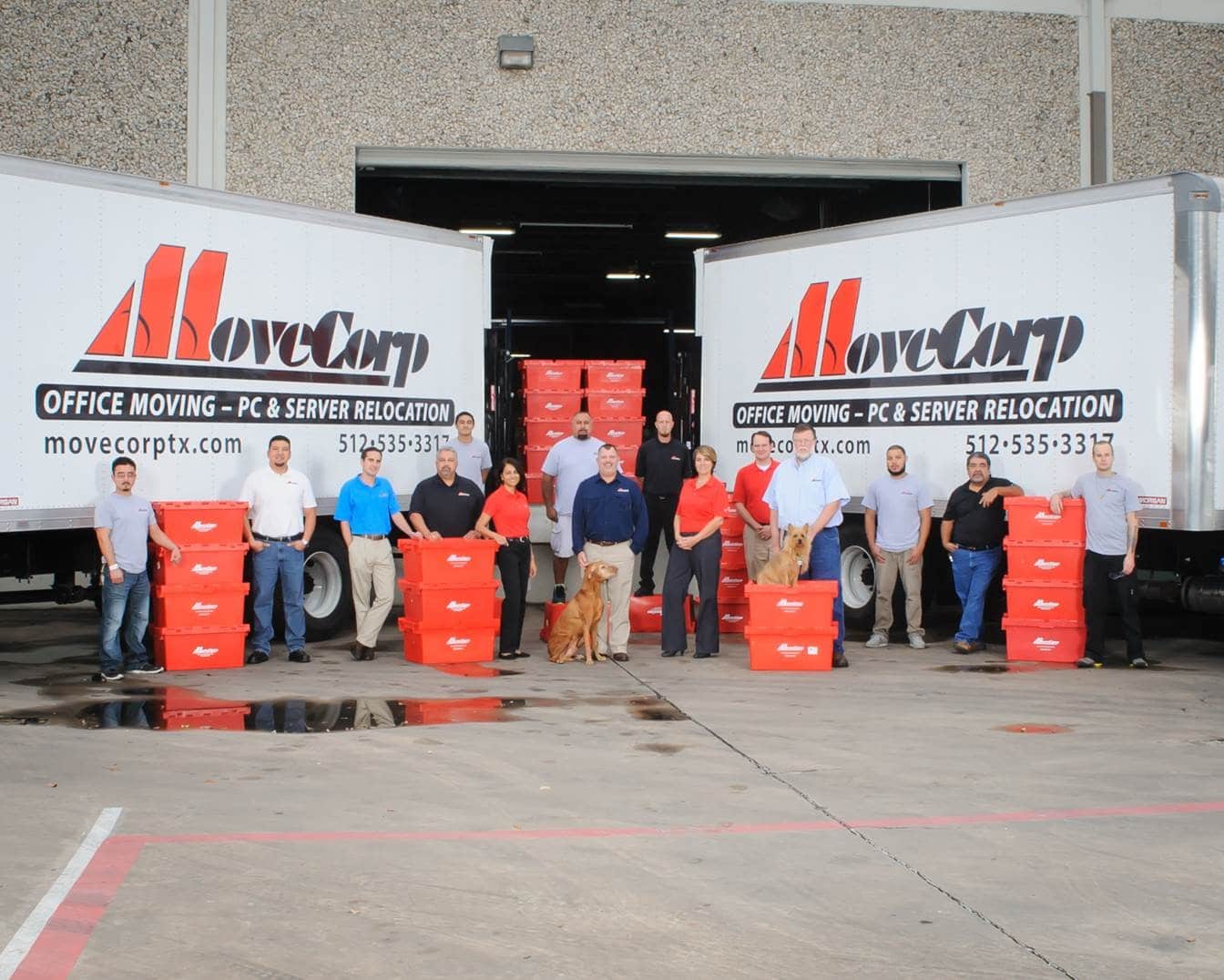MoveCorp, et al. v. U.S. Small Business Administration, et al.

CASE SUMMARY
NCLA represented Michael Loughrey, the majority owner of MoveCorp, a moving company serving local business clients in Austin, Texas. The Small Business Administration (SBA) unlawfully denied Mr. Loughrey’s application for a Paycheck Protection Program (PPP) loan under the Coronavirus Aid, Relief, and Economic Security (CARES) Act by virtue of SBA’s unlawful “Criminal History Rule” exlcuding all persons indicted or charged of any crime.
Employing more than 40 people on payroll, Mr. Loughrey applied for much-needed federal assistance to keep his business afloat, but SBA’s PPP Criminal History Rule unlawfully disqualified him, completely disregarding the intent of Congress to make loans available to all small businesses expeditiously during a national crisis. In 2019, Mr. Loughrey was arrested for driving while intoxicated. Due to the COVID-19 pandemic, Texas shut down its state courts, thus preventing Mr. Loughrey from defending himself against this misdemeanor charge before the deadline to apply for PPP loans was set to arrive June 30, 2020. Ironically, a guilty conviction for the misdemeanor charge would have made Mr. Loughrey’s company eligible for the PPP, but because he was locked out of court, SBA refused to guarantee his loan.
Congress tasked SBA with managing the PPP loans—$659,000,000,000 in total—for businesses with fewer than 500 employees. Under the CARES Act, Mr. Loughrey was fully eligible to receive the loan. NCLA argued that SBA exceeded the statutory authority that Congress delegated to the agency. The lawsuit challenged unlawful portions of SBA’s Interim Final Rule purporting to implement PPP, and it called out the agency’s Criminal History Rule as an arbitrary and capricious exercise of power.
Join the new civil liberties movement. Protect Americans from the Administrative State!
CASE STATUS: Closed
CASE START DATE: June 25, 2020
DECIDING COURT: The U.S. District Court for the District of Columbia
ORIGINAL COURT: The U.S. District Court for the District of Columbia
CASE DOCUMENTS
July 26, 2021| Order to Dismiss and Memorandum Opinion
January 25, 2021| Reply in Further Support of Defendants’ Motion to Dismiss
December 21, 2020 | Plaintiffs’ Memorandum of Law in Opposition to Defendants’ Motion to Dismiss
June 25, 2020 | Complaint for Declaratory and Injunctive Relief
PRESS RELEASES
June 26, 2020 | NCLA Brings Second Lawsuit Against SBA’s Unlawful Criminal History Rule for PPP Loans
Washington, DC (June 26, 2020) – The New Civil Liberties Alliance, a nonpartisan, nonprofit civil rights group filed a complaint in MoveCorp, et al. v. U.S. Small Business Administration, et al., in the U.S. District Court for the District of Columbia. NCLA represents Michael Loughrey, who is majority owner of MoveCorp, a moving company serving local business clients in Austin, Texas. The Small Business Administration (SBA) unlawfully denied Mr. Loughrey’s application for a Paycheck Protection Program (PPP) loan under the Coronavirus Aid, Relief, and Economic Security (CARES) Act by virtue of SBA’s unlawful “Criminal History Rule,” which excludes all persons indicted or charged of any crime.
Mr. Loughrey, who has 40 employees on payroll, applied for much-needed federal assistance to keep his business afloat, but SBA’s PPP Criminal History Rule unlawfully disqualified him, completely disregarding the intent of Congress to make loans available to all small businesses expeditiously during a national crisis. In 2019, Mr. Loughrey was arrested for driving while intoxicated. Due to the COVID-19 pandemic, Texas has shut down its state courts, thus preventing Mr. Loughrey from defending himself against this misdemeanor charge before the deadline to apply for PPP loans arrives on June 30. Ironically, a guilty conviction for the misdemeanor charge would have made Mr. Loughrey’s company eligible for the PPP, but because he was locked out of court, SBA refused to guarantee his loan.
Congress tasked SBA with managing the PPP loans—$659,000,000,000 in total—for businesses with fewer than 500 employees. Under the CARES Act, Mr. Loughrey is fully eligible to receive the loan. NCLA argues that SBA exceeded the statutory authority that Congress delegated to the agency. The lawsuit challenges unlawful portions of SBA’s Interim Final Rule that purport to implement PPP, and it calls out the agency’s Criminal History Rule as an arbitrary and capricious exercise of power.
This week, SBA amended its Criminal History Rule just hours before filing its opposition brief in another similar case brought by NCLA. The new changes vastly expand the number of businesses that are eligible for PPP loans under the CARES Act. The new Rule will allow MoveCorp, NCLA client Altimont Mark Wilks and other small business owners with criminal records to apply for much-needed funds that should have never been denied in the first place. However, NCLA argues that SBA’s eleventh-hour amendments to the Criminal History Rule are still unlawful and will continue to press for regulations that adhere to the statute as written by Congress.
NCLA released the following statements:
“MoveCorp has been denied needed funds merely because of a misdemeanor charge against its owner Mike Loughrey. While the new regulations purport to resolve this issue, a court ruling is necessary to ensure only those conditions Congress set are used in disbursing PPP funds.”
— John J. Vecchione, Senior Litigation Counsel, NCLA
“This is one of the more arbitrary cases of administrative overreach that I’ve seen. Congress set up a simple, streamlined system to get fully guaranteed loans to small businesses in need. But SBA complicated the process unnecessarily at the expense of the employees whose paychecks Congress sought to protect.”
— Jared McClain, Staff Counsel, NCLA
ABOUT NCLA
NCLA is a nonpartisan, nonprofit civil rights group founded by prominent legal scholar Philip Hamburger to protect constitutional freedoms from violations by the Administrative State. NCLA’s public-interest litigation and other pro bono advocacy strive to tame the unlawful power of state and federal agencies and to foster a new civil liberties movement that will help restore Americans’ fundamental rights.
